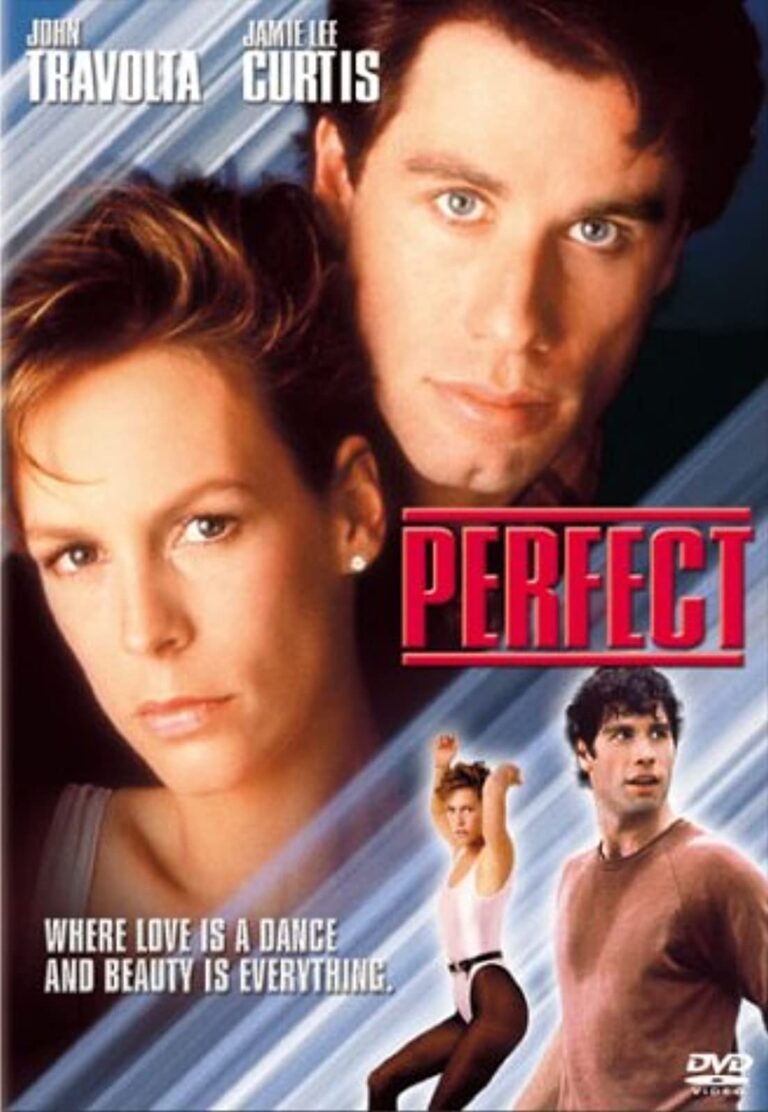The Unforgettable Flop: The Tale of ‘Perfect’
When we think of iconic films from the 1980s, Perfect, starring John Travolta and Jamie Lee Curtis, might not immediately come to mind, but its story is one of intrigue and disappointment that reflects the complexities of Hollywood filmmaking. Released in 1985, the film was expected to be a massive success, boasting a $20 million budget and the magnetic star power of Travolta and Curtis. Both actors were at the pinnacle of their careers, with Travolta fresh off hits like Grease and Saturday Night Fever, while Curtis had garnered attention for her roles in Halloween and Trading Places. However, the film turned out to be a cinematic disaster, grossing just $12.9 million globally and receiving widespread criticism. This article delves into the myriad reasons that led to the film’s unexpected failure.
A Promising Start with a Not So Perfect Execution
On paper, the concept of Perfect seemed like a surefire hit. The film, directed by James Bridges, revolves around a journalist named Adam Lawrence, played by Travolta, who is tasked with exposing the hidden world of fitness clubs while attempting to uncover a drug-related scandal. Enter Jessie Wilson, portrayed by Curtis, a fiercely independent aerobics instructor who has little patience for the media. Yet, despite its promising premise, the film quickly became infamous for its glaring flaws. Critics lambasted the screenplay, which was nominated for a Golden Raspberry Award for Worst Screenplay, and many noted that it felt more like a collection of aerobics scenes strung together rather than a cohesive narrative.
The Unintentional Campiness of Aerobics
One of the film’s most significant criticisms centered on its portrayal of the aerobics craze that swept through the 1980s. Critics pointed to the use of overly revealing costumes, especially Travolta’s excessively tight gym shorts, and the relentless focus on suggestive aerobics routines, which some described as akin to softcore fitness porn. The film’s R rating was largely attributed to its explicit workout sequences, characterized by pelvic thrusts and sensual choreography. Jamie Lee Curtis later expressed her dissatisfaction with how these sequences were shot, lamenting that they often felt more pornographic than artistic. She stated, “They’re supposed to be substitute love scenes… but in a way, the scenes are almost more pornographic than if I were naked.” This sentiment highlights the disconnect between the film’s intentions and its execution.
Jamie Lee Curtis’s Dedication and Regret
Despite the film’s shortcomings, Jamie Lee Curtis gave it her all. She underwent extensive training to prepare for her role, embracing the aerobics culture with enthusiasm. Curtis herself was an athletic person, and she described her excitement to be part of the film, saying, “I’m an athletic person, a minor sort of closet jock.” However, her dedication came at a cost; by the time filming concluded, she had actually lost ten pounds of muscle due to her intense workout regimen and restrictive diet. Curtis has since expressed mixed feelings about her experience, admitting that while she enjoyed working with her co-stars, she was disappointed with how her character’s aerobics scenes were handled, feeling they overshadowed her acting performance.
John Travolta: No Regrets
For John Travolta, the experience was a bit different. Although his career took a noticeable hit following Perfect, he has voiced no regrets about his participation in the film. Travolta appreciated the opportunity to collaborate with James Bridges and the camaraderie he developed with the cast. However, the film’s critical reception marked a significant downturn in his career, leading him to take a brief hiatus from acting. His return would not come until 1989 with The Experts and Look Who’s Talking. The challenges he faced during the production of Perfect resonate with many actors who have encountered similar pitfalls in their careers.
The Unexpected Star: Jann Wenner’s Cameo
Interestingly, one of the standout performances in Perfect came not from a traditional actor but from Jann Wenner, the co-founder and editor of Rolling Stone magazine. Wenner played Mark Roth, Travolta’s editor, and brought an authenticity to the role that many seasoned actors struggled to emulate. He even went through a full screen test alongside Travolta, proving his commitment to the role. Wenner described the film as “dead-on accurate” in its portrayal of the magazine world, hoping it would clarify misconceptions about Rolling Stone for audiences. His contribution, though not initially recognized, adds an interesting layer to the film’s narrative.
Legacy of a “Perfect” Disaster
Despite its initial failure, Perfect has since gained a certain cult status, often being listed among the “most enjoyably bad movies.” Quentin Tarantino even referred to it as “greatly under-appreciated” in a Rolling Stone interview, noting Curtis’s performance as a highlight. Today, the film serves as a fascinating case study in the unpredictable nature of cinema—what can go wrong during production, and how audience reception can shift over time. Jamie Lee Curtis’s recent parody of her aerobics routine on The Tonight Show, alongside Jimmy Fallon, showcases a sense of humor about the film’s legacy and reinforces the notion that even flawed projects can bring joy and laughter years after their release.
As we reflect on the story of Perfect, it’s clear that the film embodies the unpredictable essence of Hollywood—a combination of star power, ambition, and misplaced execution. While it may not have achieved the success its creators envisioned, the discussion it generates about body image, media representation, and the changing nature of cinematic storytelling continues to resonate. Ultimately, Perfect, with all its faults, remains a significant piece of 1980s cinema that reminds us that perfection is often an illusion.

















